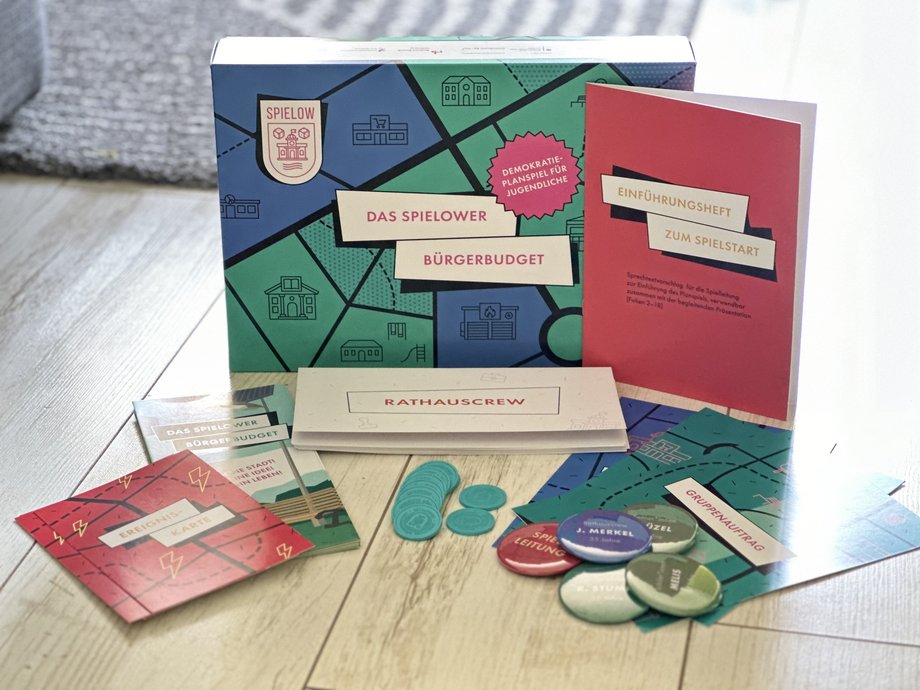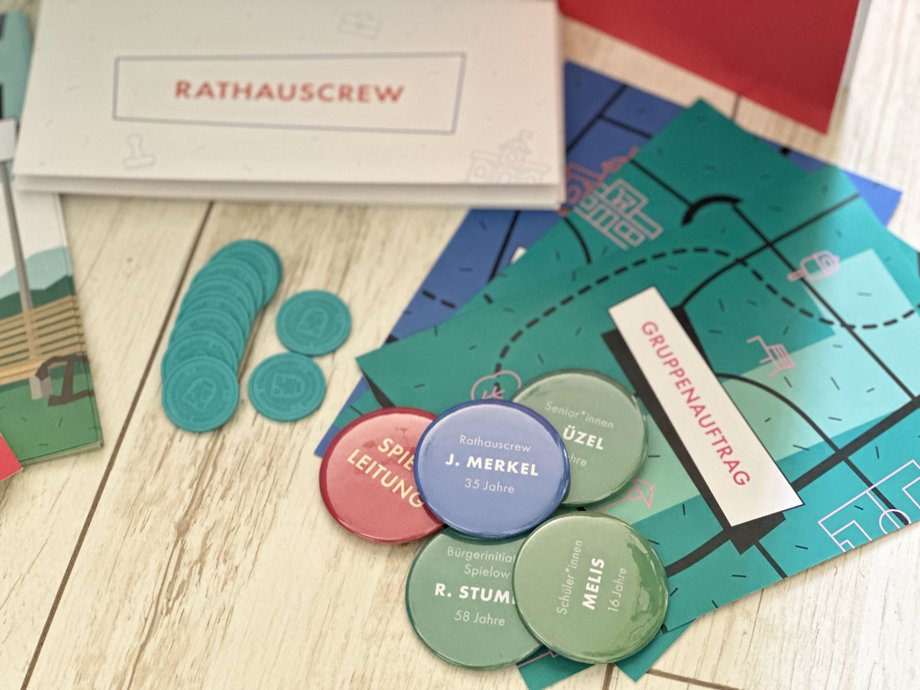The Spielow citizens' budget
During the simulation game in the fictitious town of "Spielow", participants slip into the role of various local actors. They not only learn how they can incorporate their own interests into the citizens' budget, but also deal with the needs of different social groups and thus experience a democratic negotiation process in a playful way. On the one hand, the simulation game can be used to prepare for participation in the local participatory budget. On the other hand, it can also be played as an example of democratic participation in municipalities where there is no citizens' budget.
We would like to express our special thanks to the JUBU model project, which provided us with a free copy for the lab!
Link to the simulation game: https://www.youtube.com/watch?v=PXNn4KnxCg0&t=7s
Number of participants
for groups of 10 to 32 participants
Age recommendation
for children and young people aged 15 and over
Duration
Depending on group size, between 4 and 5 hours
Venue
Seminar room
Structure and procedure
The simulation game includes group profiles, task cards, an Urban Planning of Spielow, name badges for a total of 32 different roles and voice talers that help the participants to better empathise with the respective roles.
The initial situation
The annual citizens' budget in Spielow was put out to tender. All residents of the town are allowed to make suggestions as to what the money from the citizens' budget should be used for. The proposals must benefit the general public, i.e. be accessible to everyone and free of charge. A proposal may cost a maximum of 15,000 euros and a maximum of three proposals will be realised. Proposals can be submitted by both individuals and groups. The proposals will be voted on at the city festival on "Decision Day". All residents of the city can vote. Each person receives 5 voting talers, of which a maximum of 3 may be allocated to their own proposal. Who will make the most skilful use of the opportunities this year and come out on top?
Organising the participants in the game
The participants in the simulation game are divided into the following groups:
- Game management
- Town hall crew
- Up to seven social groups
The game leader introduces the game phases, keeps an eye on the time and supports the town hall crew with questions about proposal criteria. They can actively intervene in the game with event cards and are always available to answer questions. However, the game leader has no voting rights and acts as a referee.
The town hall crew advises the other groups on their proposals and decides which proposals can be admitted for voting. It organises the presentation of the proposals on "Decision Day" and conducts the vote on the proposals. However, it does not have the right to vote.
The following seven social groups develop the proposals for the citizens' budget:
- Pupils from the Theodor-Fontane-Schule
- Young people from the youth club
- Senior citizens from the meeting centre
- Families from the Rübensiedlung neighbourhood
- Citizens' initiative "Spielow should become more beautiful"
- SV Spielow 03 sports club
- Naturfreude e. V. association
Procedure of the simulation game
(1) Game introduction and group organisation
(2) The Spielow citizens' budget
- Game phase 1: Development of citizens' budget proposals
- Game phase 2: Preparation of the "Decision Day"
- Game phase 3: Presentation of the proposals
- Game phase 4: Gaining supporters
- Game phase 5: Announcement of changes
- Game phase 6: Voting
(3) Final reflection


